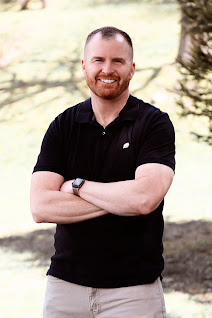This past weekend, I was thrilled to be part of the Social Thinking® Providers' Conference in San Francisco, CA. I always leave this event (this was my third) with renewed energy and a ton of ideas informing my work, which nowadays centers around language therapy and a whole lot of social cognitive work with kids who have learning challenges in this area.
This year's agenda featured updates from Social Thinking founder Michelle Garcia Winner, of course, but also great presentations from prominent thinkers in social cognition such as Dr. Jed Baker, author of The Social Skills Picture Book among other works, and Kari Dunn Buron, creator of one of my favorite tools, The Incredible Five Point Scale.
Breakout sessions featured terrific information from Maryellen Rooney Moreau, creator of Story Grammar Marker, Jenny Sojat presenting a great therapy idea about teaching kids "levels of like" to address black/white thinking, Alana Fitchtelberg on great simple activities addressing the skills in the ILAUGH model, and Nancy Clements and Anna Cotton on Project Based Learning and Social Thinking.
Some specific ideas I walked away with:
Social Thinkng is about providing very accessible language to define super complex ideas at the level of therapy. (Michelle Garcia Winner)
It is very hard to teach kids "rules." Adults think it's awful to put a "Kick Me" sign on someone's back but if doing so with humorous or gentle intent, kids actually are showing each other they are "thinking of each other"- it's validating! Similar example, if a friend gets a good grade on a test an expected response can be: "You suck!" To kids that can handle it, we must teach nuance. (Michelle Garcia Winner)
A new concept in assessing and treating early learners in play contexts is the Social Thinking GPS (Group Play and Problem-Solving Scale): ME-based players are self-focused on their object-oriented play and include adults when adults join their attention "in a tunnel" or follow the child’s lead. WE-based players are emerging or emerged in their ability to socially attend to peers and able to engage in peer based play with varying levels of support. (Kari Palmer, Nancy Tarshis, Ryan Hendrix)
The idea around the 5 Point Scale is that more language is not working, so we systematize (see Simon Baron-Cohen's Empathizing-Systematizing Theory). Similarly, calming sequences are based on training of first responders and automaticity: "when this happens, we do this, this, and this." (Kari Dunn Buron)
Working with students around formulating "Levels" and sequencing items within them can target concrete thinking and build acceptance of shades of gray. Start with "Levels of Like" (e.g. foods, games) and creation of an "OK Line" can help students to compromise when making a group plan regarding an activity/compromise. (Jenny Sojat)
Try to avoid examples of "non-active listening" when working with resistant students (I recalled saying some of these myself, ruefully) :
• “There’s no reason to be so upset.” (Denial of Feelings)
• “Mrs. Peru was just doing her job.” (Defense of the other person)
• “I think you’re missing the point of the assignment, again.” (Blaming)
• “Just do it and get it over with.” (Advice)
• “That’s life. You don’t always get to do it your way (Philosophical response)
• “I feel so sorry for you!” (Pity)
"Sounds as if you (feel/thought)..." is a good way to start an active/empathetic listening statement. (Nancy Cotton)
---Intermission---
And then our Ely Center staff took advantage of flying all the way from Boston to the West Coast to...go to a Red Sox Game!
---End Intermission---
Jed Baker, an amazing speaker, discussed the efficacy of peer training at middle and high school level in changing a school climate to be supportive of students with social learning challenges. He also mentioned that response cost systems (e.g. Class Dojo, taking away points) should be used with students who are disregulated with positive emotion, not negative emotion.
Students can build social cognition and skills through project-based contexts (see Project-Based Learning). These interpersonal effectiveness videos are great resources for expected and unexpected behaviors in contexts of working in a group. (Nancy Clements)
Finally, I was very happy to be presenting at this conference myself. My session was a new approach for me, presenting 3 different apps (Pic Collage, Keynote, Toontastic) that could be used for Social Thinking along with an analysis of their features and presentation of examples of how I have used them. The participants then had time between each resource to brainstorm at their tables and add ideas to a collaborative digital "wall." This in-depth "zooming in" on resources was a lot of fun and those who attended added many great new thoughts on how the apps could be used for social development.
Here are the 3 walls on Padlet, below (just use your mouse to move around the wall and "hover" on any boxes hidden in order to read them):
I highly recommend getting to a Social Thinking conference soon!
Social Thinking is based on the work of Michelle Garcia Winner. See socialthinking.com for great products and free resources.
Disclosure: Author is employed by The Ely Center, LLC and is a contractor with Mindwing Concepts, Inc. for provision of blog content and professional development.
Thursday, June 26, 2014
Social Thinking Providers' Conference 2014
Labels:
apps,
context,
professional development,
social thinking
Subscribe to:
Post Comments (Atom)






San Diego in February!
ReplyDeleteI've always found this post helpful, but now I cannot access the interpersonal effectiveness video link you included. Any idea on where to find it?!
ReplyDeleteHI Jill, sorry just seeing this comment. The vids are here now:
Deletehttps://pogil.org/educators/resources/interpersonal-effectiveness-videos
The opinions of opinion leaders often impose their thoughts and these are not always people who have gained their popularity honestly. Popularity does not always mean that a person is good, and it can be difficult for some to gain the coveted number of subscribers on social networks. Therefore, I would advise you to call the customer service on the Famoid phone number and ask them about how they can help you solve your problems. Your social networks will be able to get much more coverage through legal methods.
ReplyDelete